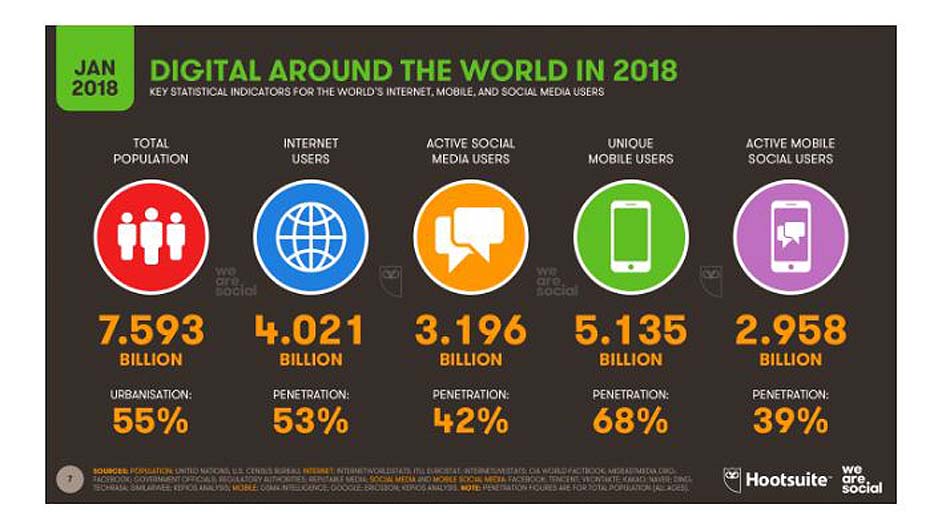Digital Landscape of Human Experience
A set of changes in the EU is setting off strong ripples throughout the World Wide Web. Amy Webb’s post “The Splinternet” outlines impacts of the EU General Data Protection Regulation (GDPR), exploring implications. You may be feeling it in your inbox, or as you visit your favorite Websites, a slew of privacy notifications coming in from newsletter providers. Privacy, personal data and natural selection is revealing fractures where nations, exercising their right, begin to choose how the Web will respond to the individual’s right to privacy. As individual data either shared, or as different nations interpret the GDPR for their respective population, what their citizens will or will not receive. While Webb’s post has a point of view largely from news and information’s capacity to serve democratic objectives. There is a broader implication in this:
“Ideas about how our global information superhighway ought to be regulated, and by whom, are diverging rapidly. Even in the United States, the Internet’s birthplace, ideas about news and freedom of the press are shifting. Traditional news is under siege, as newspapers and magazines shutter and shrink, and local broadcast news viewership continues to decline.”
If the information marketplace is the message, news and the ways society informs itself are decidedly heading into new territory. This is not news, the channels of control of distribution have been significantly disrupted for more than a decade with the failed print business model of news. Some of the healthiest news ecology is found among emerging local publisher communities. The consumer, citizen, neighbor, voter, reader, student – as individuals are the sum of many parts. The one thing folks yield to or base their actions on, is ultimately the power of their direct experience. Its the one thing people can speak to, where they experience direct interaction or impact, with certainty. Increasingly, one of the few things that human beings turn to is their own deeper knowing and direct exposure to the reality of their day to day. Morning time, drive time, work, family – making a life.
Making Meaning, Sharing Experiences
To scan the vast content, personalities and creativity that just instagram as a platform and social channel has unleashed – we see a dynamic slice of the “omni” marketplace we now live in. Digital realms have altered humanity in a quantum leap, just across social channels in aggregate based on Hootsuite data? Globally give or take 3.2 billion active SOCIAL media users out of a total population of about 7.6 billion people on the planet. 2.9 billion active MOBILE social users. And these numbers continue to climb.

To a large extent technology now so ubiquitous, it simply flows into humans lives like the air we breathe. With a few of mega media entities owning the information experience across mainstream platforms: people largely starting their day with the radio on their commute, paired with on screen experiences over the course of the day, typically back to “drive time” radio for the commute home and then on to the local news via broadcast to close the day. Beyond this? Hundreds of other potential organic moments and possible touch points. The once largely flat world of push advertising or media controlled branding or messaging appeal is a thing of the past, one dimensional reality “back in the day.”
The market landscape has evolved into a dynamic, interactive, expressive and extensible experience. Whatever the act of persuasion may be, between friends and family sharing preferences or brands and customers or communities, comment streams, user reviews, standards of exchange with elected leaders or public service agencies – the experience is the message.
This rewiring of the institutions that once held much of this interaction power in exclusivity, be that by default of structure or intent to mine and maximize an intended persuasive appeal – many institutions or disrupted industries are struggling to keep up. And the world? is never going back to that still life of experience or market colonization.
The Visceral Economy: Signal from Noise
Silos are no longer effective, although plenty of them continue to operate as an ode to antiquity with a historically shuttered perspective preventing the kind of power possible in cross-disciplinary practices or cross-expertise collaborations. There is an inherent responsibility that comes with instant ability to bring lift or deliver disaster. Markets have never been static and now they are multi-dimensional, multi-national, multi-lingual, multi-cultural. Digital natives have not been raised with many of the hang ups of prior generations who were acculturated by the virtues of virtual communities with friends of different race, color, geography or faith over the entirety of their young lives. Their common bond spanning multitudes of traditional divides; creatively sharing music, ideas, viewpoints, politics, images or stories. Learning together, all a part of a world shared and experienced through the eyes and hearts of those, on the other side of their screen – or planet.
In parallel, experiences of markets, currency and values have begun to blend. To generations coming forward, the idea of marketplace is broad and visceral. The baseline is an authentic experience that is consistent, not pitching at them, but learning together discerning signal from noise. From Gen X, Y to Z, the millennial crew, boomers and in between – there is a higher litmus for what is genuine. As the Web evolved to semantic, AI and AR and autonomous travel becomes more ubiquitous, there is a greater longing and appetite for experiences that connect with, or animate us. Smart Cities a flash into the future potential of a sharing economy realized. For those who work closely with the public, or the customer or the citizen, the idea of keeping the human in the loop is essential. While technology and its greater potential one of the greatest feats of humanity to date. The flip side of this, is to ensure that the collective experience of people, keep the technology operating in service of the human it benefits.



